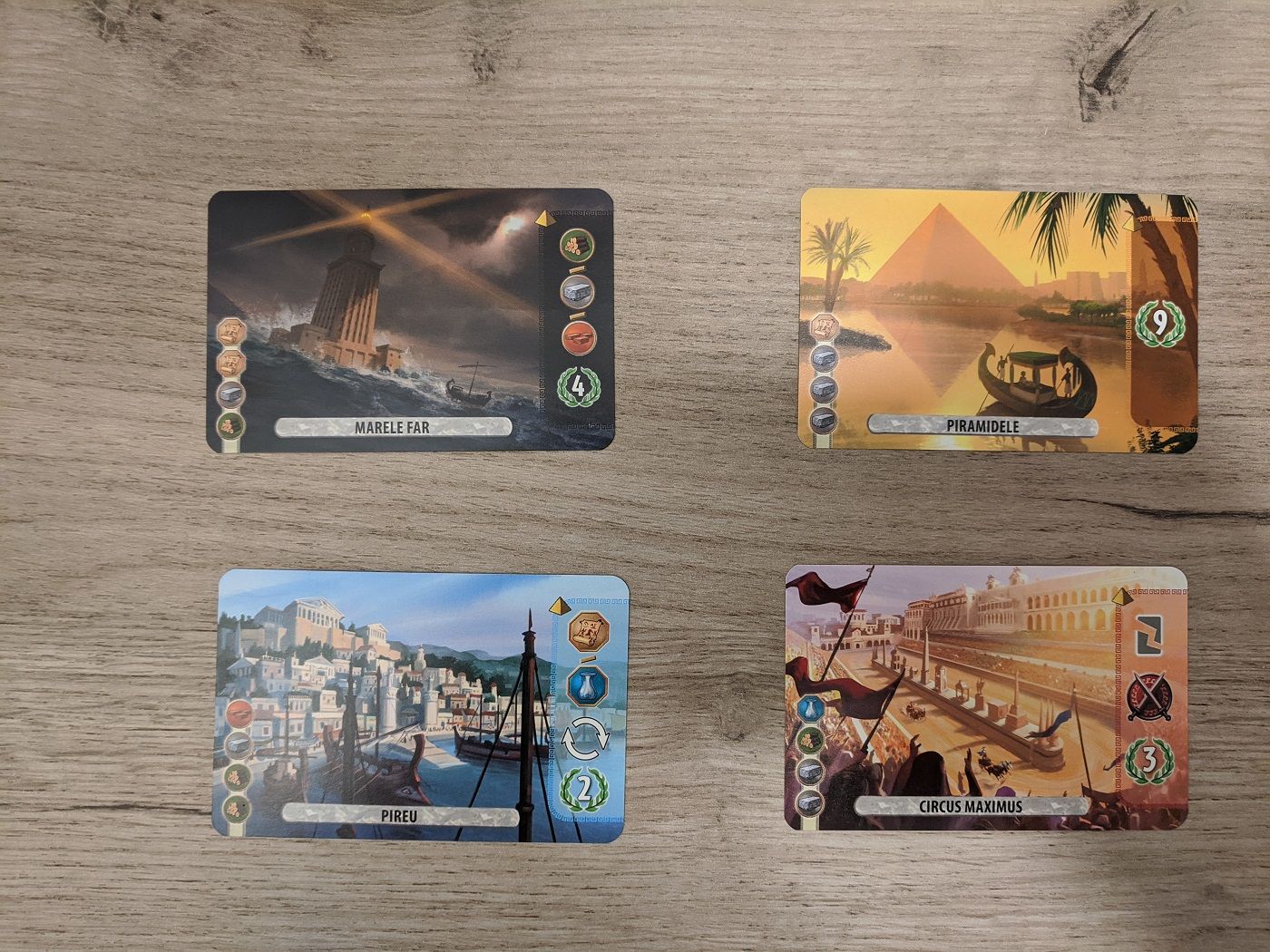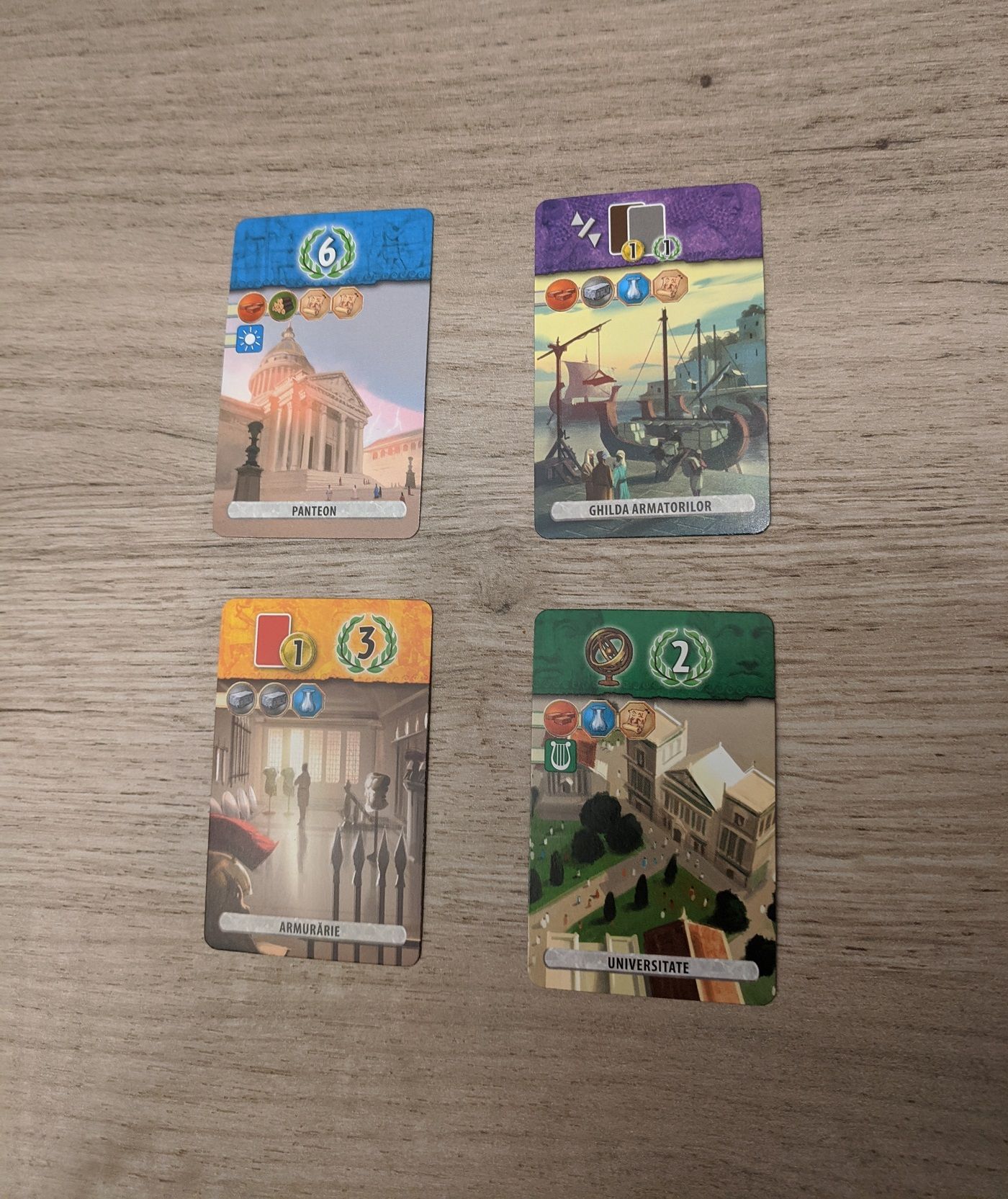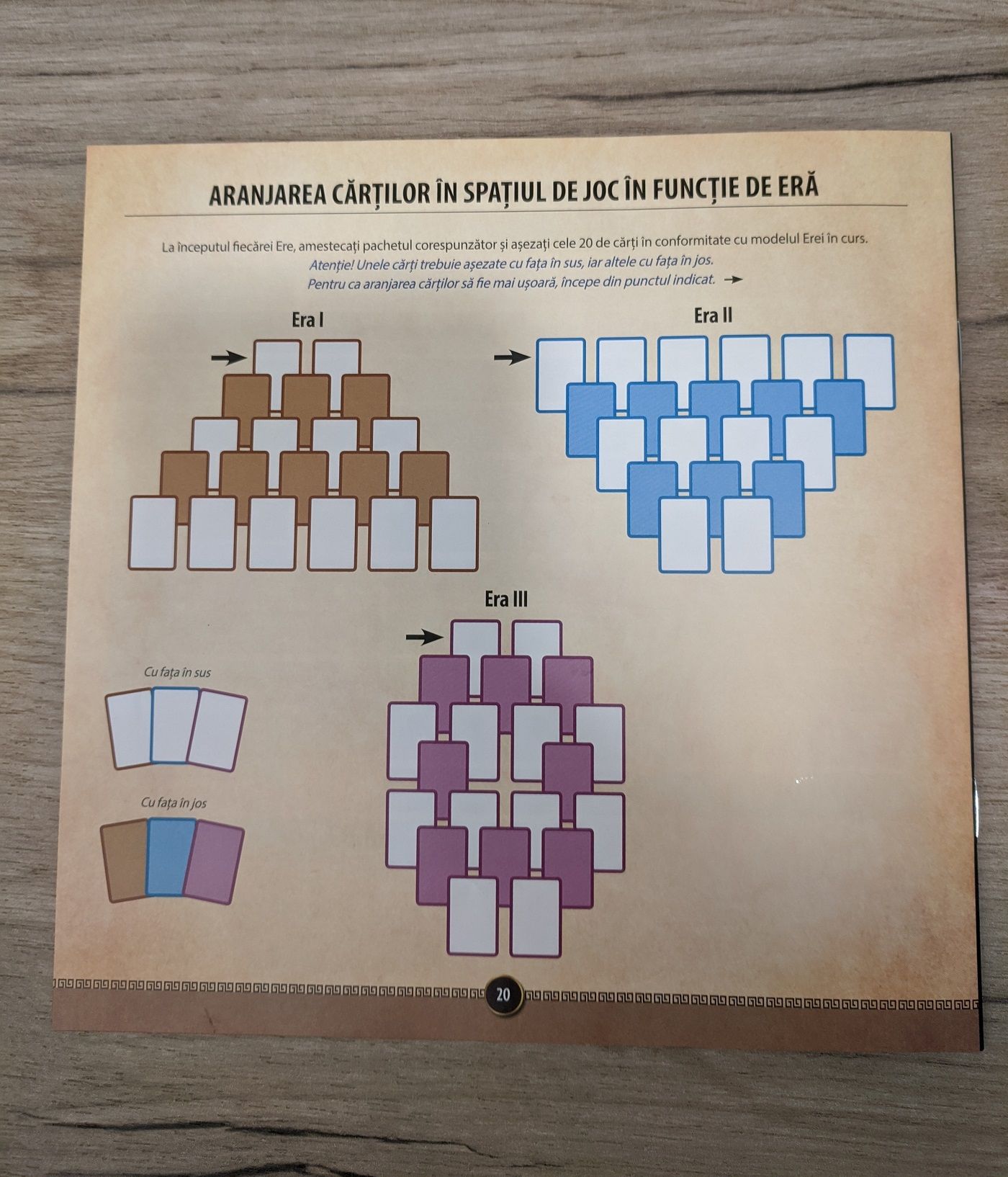Boardgames Miniparty: 7 Wonders Duel

Last night, my wife and I wanted to play a boardgame by ourselves. Looking through my collection, we decided to give 7 Wonders Duel a try. The original 7 Wonders game is played between 3 and 7 players. The Duel version is made for two player game, with several nice twists to still keep some surprises in the game. Technically, the original can also be played in two players, but you have to create a fake player, and it's really weird.

Most of the game mechanics are similar to the original game. Just like there, despite the fact that the game is named 7 Wonders, the goal of the game is not to build one of the 7 wonders of the ancient world, but to develop your civilization over 3 eras and get the most points.
One of the twists is that you can win before reaching the end of three eras. You can do so either by conquering the other player's city (moving the red peg pictured above to the opposite side), or by collecting enough scientific symbols. In the original, military battles were pairwise between players and just lead to gaining points, and scientific cards were really hard to properly explain. Now it's much simpler.

In the original, every player had 1 wonder they could build in stages. Now every player has 4 different wonders, which each give different benefits. But some have a really cool power of giving you an extra turn and some let you destroy card belonging to your opponent.

Using the card system has not changed much. There is still a level up system and most buildings still cost resources. Resources are produced by some cards. When you don't have enough resources to build something, you can still buy resources, but now they are more expensive (2 gold + however many of those resources your opponent produces). Some buildings give you victory points, which will get you the classical, civilian victory. But what has changed is how you get cards.

Cards are placed in a hierarchical structure as pictured above. You can only pick up visible cards on your turn and every alternate layer is hidden from you. So you can't really plan ahead, because you still get surprise cards from time to time. And in some cases you can really force the other players hand, especially in the 3rd era, by leaving them only one card that they can pick up.
I felt that this game is simpler than 7 Wonders, but it still has 20 pages in the rulebook. But, unpacking the game, reading the rules for the first time and doing the scoring, it took us less than an hour and half. And it was a quite fun 1.5 hours with my wife :*
Score: 8


